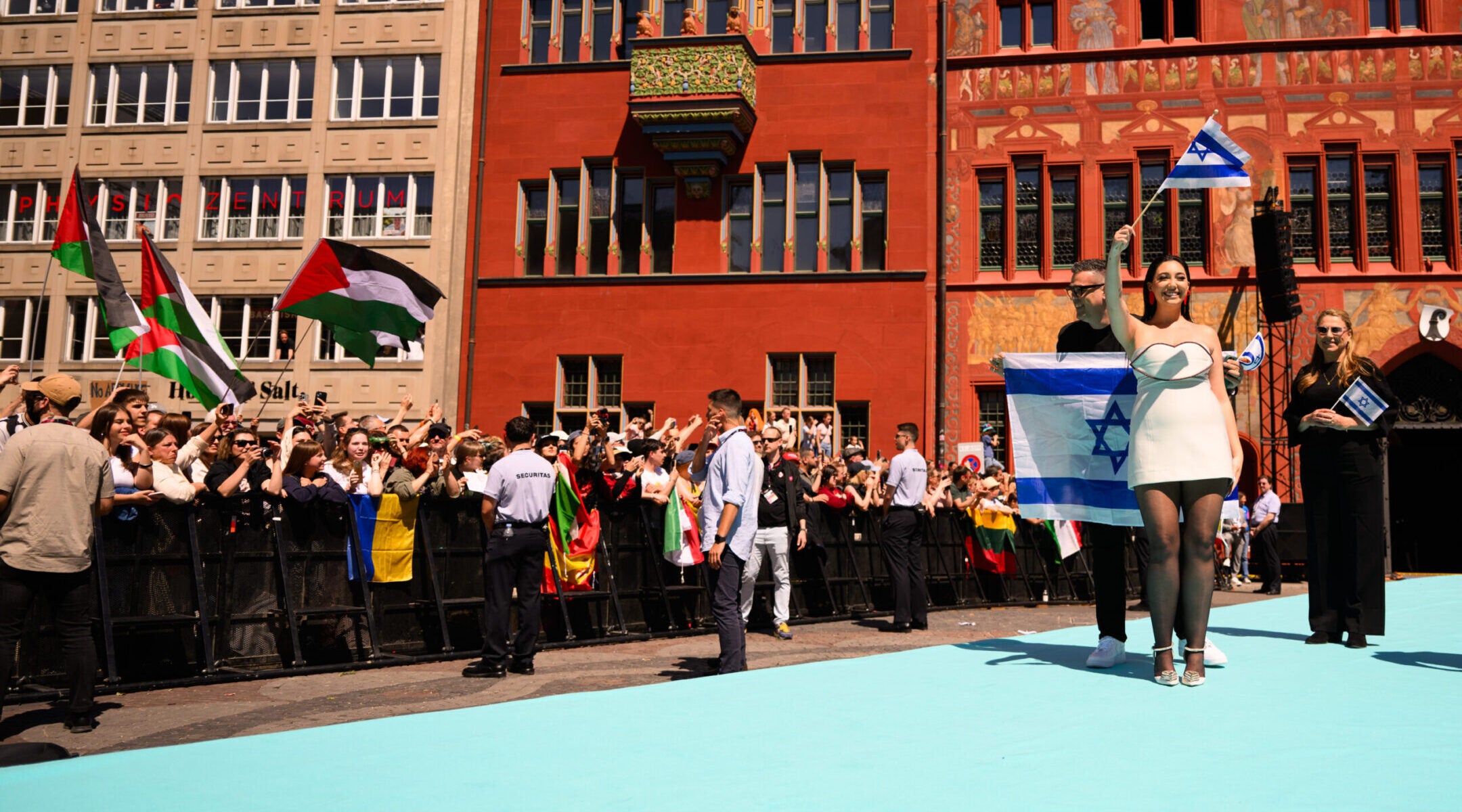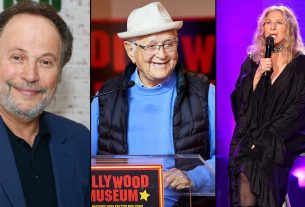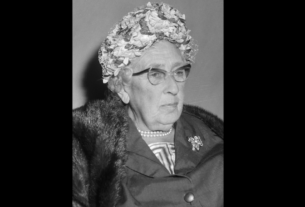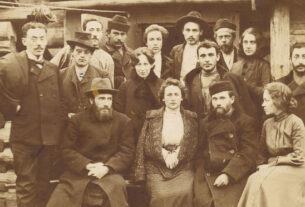If she found it unnerving to see someone make a throat-slitting gesture at her as she walked the carpet at the first event in the Eurovision song contest, Yuval Raphael wasn’t letting on earlier this week.
“It was a stressful situation, scary at times,” Raphael, Israel’s competitor in this year’s song contest, told the Jewish Telegraphic Agency in an interview Monday. She was speaking a day after the competition’s “turquoise carpet” kickoff, when Israel filed a police report accusing a pro-Palestinian demonstrator of making the threatening gesture and spitting at her.
She added, “But I keep reminding myself — and I have my team that keeps reminding me — that we’re here for a very amazing and sole purpose, which is music and to give a good performance and to bring honor to my country.”
Raphael was speaking from Basel, Switzerland, where she will take the stage Thursday in the semifinals 37-country competition to perform the song “New Day Will Rise,” an anthem for an Israel seeking to transcend years of division and trauma.
She is performing a year after Israel’s previous entrant, Eden Golan, was booed while performing in Malmo, Sweden, where she had skipped celebratory events and largely remained in her hotel room amid security concerns and widespread protests against Israel over its war in Gaza. This year, Israel warned attendees to avoid protests and not display symbols of Jewish or Israeli identity.
The competition also falls just over a year after Raphael testified in front of the United National Human Rights Council about her experience on Oct. 7, 2023, when she survived Hamas’ deadly assault on the Nova music festival. She described piling into a bomb shelter with dozens of other festival-goers as terrorists assaulted them.
“When the bodies of those murdered fell on us, I understood that hiding under them was the only way I could survive this nightmare,” she testified. Of the 51 people in the shelter, she said, 40 were killed that day. She added, “The physical injuries I sustained that day are healing, but the mental scars will stay with me forever.”
Raphael, 24, launched her singing career after the attack and has participated in music workshops for festival survivors. She said before her winning performance in Israel’s qualifying competition that she wanted to bring her story to the world.
“I want to tell them the story of the country, of what I went through, of what others went through,” she said on air. “I want to tell the story, but not from a place of seeking pity. I want it to be from a place of standing strong in the face of this, and in the face of the boos I’m 100% sure will come from the crowd.”
Now that she and her team have arrived in Basel — famous in Israel’s history as the host city of the First Zionist Congress in 1897 — those boos have grown more audible. While her stock is rising in the betting markets, she is facing fierce calls for her exclusion, including from 70 past competitors who have petitioned for Israel to be kicked out over the war.
“I support the call for Israel’s exclusion from the Eurovision Song Contest,” Nemo, a Swiss artist who won last year’s competition, told the Huffington Post. “Israel’s actions are fundamentally at odds with the values that Eurovision claims to uphold — peace, unity, and respect for human rights.”
Singer Eden Golan, representing Israel during last year’s Eurovision Song Contest, was booed while performing in Malmo, Sweden. (Jessica Gow/TT/TT News Agency/AFP via Getty Images)
The European Broadcasting Union, which oversees the contest, has rebuffed all entreaties to exclude Israel. But this year, it altered the audience rules so that attendees can display any flag of a recognized state, not just those of the countries performing. That means when Raphael sings in the semifinal on Thursday, it’s likely that she’ll see Palestinian flags waving in the stands, in a visual reminder of the antagonism her participation has induced.
“There are things that I can control and things that I can’t. And I’m really, really focused on the things that I can control, which is the song, the performance, my voice, keeping it as healthy as possible,” she said. “I’m coming with the biggest heart and so much love and hope. So, yeah, whatever happens, happens.”
Israel has won Eurovision four times over its 68 years, most recently with Netta Barzilai’s “Toy” in 2018. The 2019 contest was held in Tel Aviv as a result.
Keep Jewish Stories in Focus.
(JR) has documented Jewish history in real-time for over a century. Keep our journalism strong by joining us in supporting independent, award-winning reporting.




